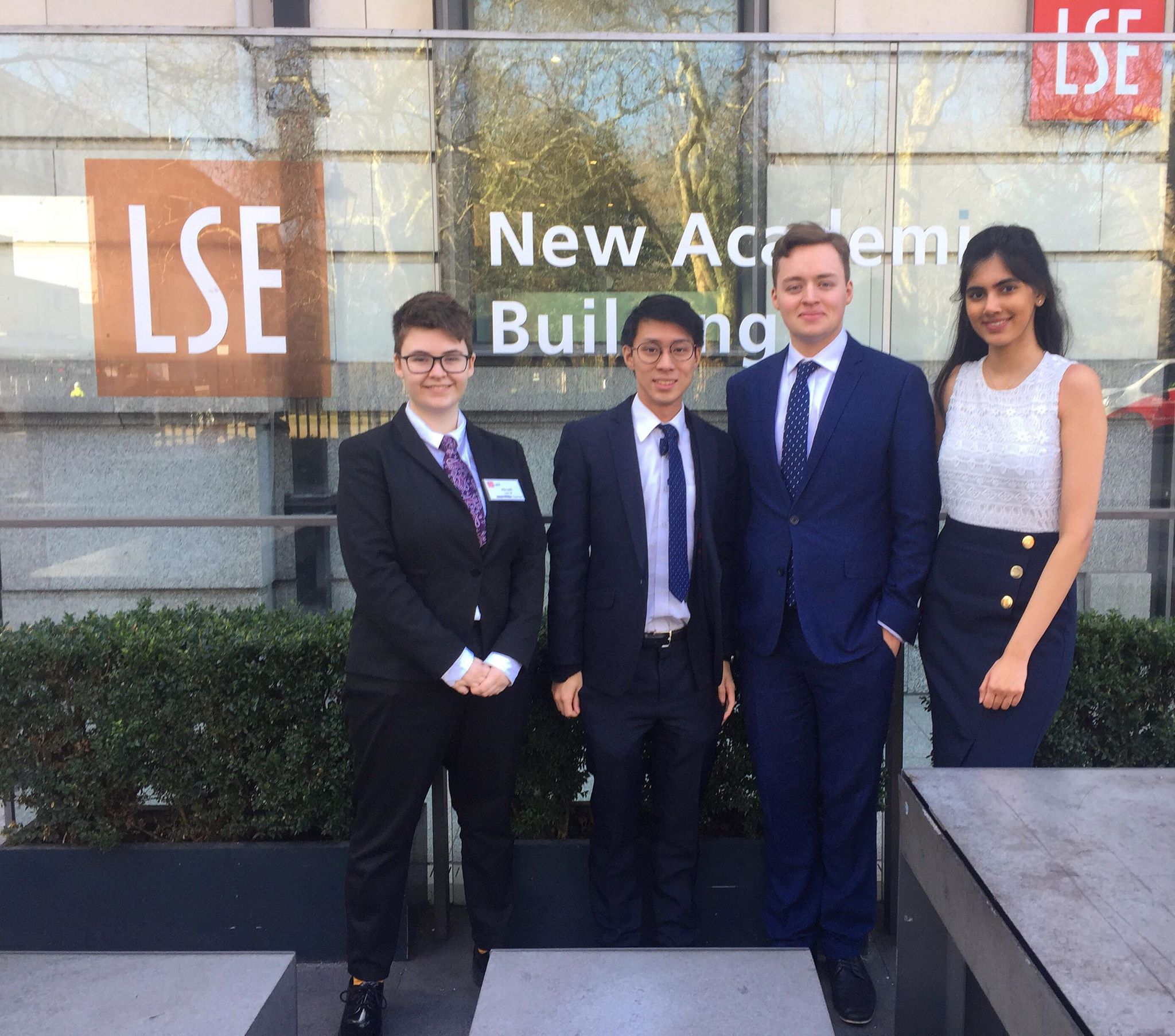Team member and second year law student, Timothy Lo spoke to us about the team’s experience of competing in this prestigious competition:
The two-day competition was overall a very enjoyable and rewarding experience. The moot problem focused on the issue of transgender recognition. Specifically, we were asked to consider if a private club may exclude a transgender woman who does not have a Gender Recognition Certificate by relying on the exemptions provided in the Equality Act for single sex associations. We also had to consider if the test for harassment under the Equality Act was misapplied. This moot problem is particularly timely because the UK Government is currently considering a policy change by carrying out a consultation on reforms for the Gender Recognition Act.
Having carried out thorough research for the moot problem, we submitted our skeleton arguments in early February, and we were all delighted to know that we have qualified to compete in the oral rounds in late February.
The oral rounds held in late February involved 36 teams of students. Experienced practitioners and academics who specialised in the field of sexual orientation and gender identity law were asked to judge the moots. The standard of the competition was immensely high. For the first round, Charles and Ashreyna mooted as the respondents against the National University of Singapore (NUS). The NUS team had flown all the way from Singapore to London just for this competition, and hence they were exceptionally well-prepared. The first round was closely fought and the judges have further commended our case research, as we were able to find a less well-known case to support our arguments.
In the second round, we were paired against The City Law School. Ffion and I in this round were appellants for the same moot problem. It was another challenging round given the judges also posed difficult questions which tested the strengths of our arguments. They were questions which revolved around policy arguments and the interpretations of the relevant legislations. Serena Sekhon, a former Bristol student, was also part of this City Law School team which have eventually reached the Semi-Finals of the competition.
We did not make it through to the quarter-finals, though we as a team still nonetheless thought this moot experience was very satisfying. We were able to learn and appreciate a vexed area of law, and grasp the potential policy changes it has in the future.
There were also a number of workshops on the second day. Particularly, I enjoyed the one which had the appellant for the case R (Christie Elan-Cane) v Secretary of State for the Home Department to give a talk about their progress of achieving recognition for non-gendered identity. Our team has cited this particular case in our skeleton submission, and thus it was intriguing to hear first-hand insights from the individual and their legal counsel who have been enduring this lengthy legal process.
Special gratitude must be given to our coaches Dr Shreya Atrey and Dr Peter Dunne. They have provided us invaluable guidance for both our skeleton submissions and oral submissions. The LSE Featherstone Moot really was intellectually-stimulating, and we would encourage those who wishes to stretch their legal analytical skills to get involved.
